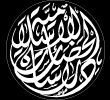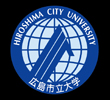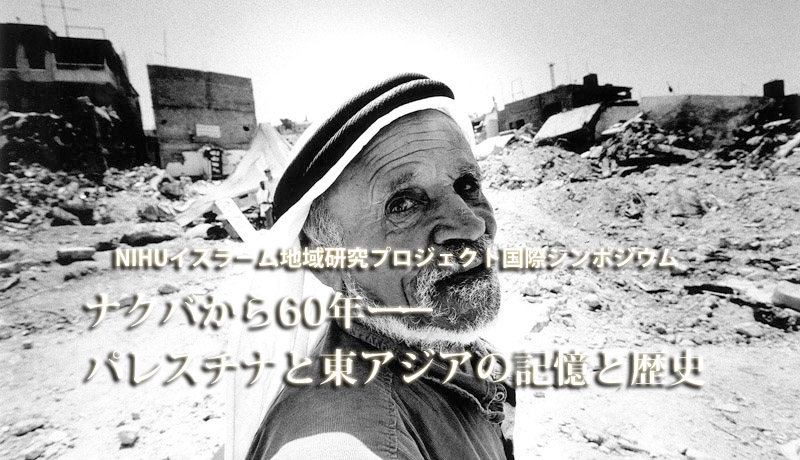|
Artist, Author and Anthropologist is internationally known. Born in Jerusalem and educated in the USA his books and artworks have taken him all over the world. His book Before the Mountains Disappear is an ethnographic description of everyday Palestinian life. The book provides a narrative vista rich with anecdotes from personal experience into the manners and customs of modern Palestinians. The book was translated into English, German and Japanese. Presently he is researching a new book documenting aspects of contemporary peasant Palestinian culture. Chapters of the forthcoming book have been serialized over the past two years in the monthly gazette, This Week in Palestine.
Another book, Jerusalem in the Heart is a cultural guide to the social historical aspects of Jerusalem and is illustrated with his own art work and photographs. He has written in Arabic several books and plays. Among his Arabic works, The Mystery of Japan, is an anthropological interpretation of Japanese Culture.
His painting "Double Window" was the first Palestinian art work chosen by UNICEF. He had innumerable art shows all over the world and his art work are kept locally and internationally in private collections in Tokyo, Vienna, Brussels, Cairo, Amman, Paris, New York, Rome, Boston, Costa Rica, Salvador, Honduras…
In his recent art exhibition, In the Realm of Light, Qleibo art work, through use of the play of light and shadow, expressed his spiritual sufi interests… The art show was in the commemoration of 800 year anniversary of the great mystic, Jalal el din Rumi.
Qleibo's ethnographic cum art work includes filmic documentaries that cover aspects of Palestinian Social history. His film, "le Regard de l'Autre" a film subsidized by the French Government relating to post Modernism in French Society filmed in location in Paris was first released in the Jerusalem Film Festival in 2003.…..He has written several plays two of which were produced in Japan and Israel.
His research and articles on mystical Islam, as a fellow at the Hartman Institute, allowed him to lecture on Islam in various international interfaith dialogues including the prestigious "Meeting" in Rimini organized by Commune and Liberation….
After a three year sojourn in Tokyo, Japan, as a visiting professor where he lectured on Palestinian Culture and society, the semiology of Egyptian cinema and the "Discourse of Love in the Modern Arabic" song his nostalgia to Jerusalem brought him back to his hometown.
Dr. Qleibo presently lectures on Ancient Classical Civilizations at al-Quds University.
CURRICULUM VITAE
Name: Ali H. Qleibo (Ph.D.)
Anthropologist, Author & Artist.
Languages: Arabic, English, French, Spanish.
Formal Education and Academic Degrees:
| 1986 | Ph.D. Cultural Anthropology
Temple University, Philadelphia, Pennsylvania.
|
| 1981 | M.A. Cultural Anthropology
Temple University, Philadelphia, Pennsylvania. |
| 1977 | B.A. Liberal Arts (magna cum laude)
Temple University, Philadelphia, Pennsylvania.
|
| 1973 | Associate in Arts Degree.
Bir Zeit College, Ramallah.
|
Academic Work Experience:
| 2002-2008 | Assistant Professor. Al-Quds University. Jerusalem.
|
| 2001-2002 | Director of Cultural Studies Program/Al-Quds University
Fellowship at Shalom Hartman Institute |
| 2000-2001 | Director of Department of Fine Arts/ Al-Quds University
Coordinator of research project "Common Heritage."
Al-Quds University and Truman Institute/Hebrew University.
Fellowship at Shalom Hartman Institute
|
| 1999 | Assistant Professor. Al-Quds University. Jerusalem.
|
| 1996-1998 | Visiting Professor. Tokyo University for Foreign Studies.
Nishigahara Yonchome, Tokyo, Japan.
|
| 1994-1995 | Assistant Professor
Bir-Zeit University, West-Bank
|
| 1988-1991 | Assistant Professor
Al-Quds University (Dar-el Tiffel) Jerusalem.
|
| 1987-1988 | Assistant Professor
Bethlehem University, West-Bank.
|
| 1979-1983 | Research Assistant
Temple University, Philadelphia, U.S.A.
|
| 1978-1979/td> | Teaching Assistant
Temple University, Philadelphia, U.S.A.
|
| 1977-1978 | Teaching Assistant
Temple University, Philadelphia, U.S.A.
|
Academic Achievements:
| 2001-2002 | Jerusalem/ Al-Quds University:
Director of cultural studies project that aims to develop the curriculum for freshmen course titled "World Civilization". The freshmen compulsory course is an introduction to Babylonian, Ancient Egyptian, Canaanite, Classical Greek, Indian, Japanese, Moslem and French civilizations.
|
| 1999-2001 | Jerusalem/ Al-Quds University:
a .Developing Curriculum for Department of Fine Arts/
b. Developing curriculum for peace education "Common Heritage" in coordination between al-Quds University and Hebrew University.
|
| 1995-1998 | Japan/ Tokyo University:
Visiting professor lecturing on Arabic Society and Culture, the Israeli- Palestinian Conflict. Semiotics of Egyptian Cinema, Discourse of Love in the Modern Arabic Song, Theater and the Palestinian Experience
|
| 1975-1987 | Palestine/ Bir-zeit University:
History of Jerusalem, Modern Palestinian History, Classical Muslim Civilization, World Civilizations Modern Arabic Thought. Palestinian Anthropology. Cultural Studies...
|
| 1977-1984 | U.S.A. Temple University/ Philadelphia Pa.
Structural Anthropology. Contemporary Arab Society and Culture. Area Studies.
|
PUBLICATIONS:
| 2009-2008 | Surviving the Wall
The ethnography is based on extensive field work invites the reader to explore explicit fundamental issues such as gender, folk customs, memory, communication and personnel and cultural identity in Palestine. The underpinnings of the contemporary Palestinian cultural identity are discussed through the description of a wide spectrum of Palestinian cultural expressions. The diverse themes encompass the study of peasant classification of nature and land use, love and marriage, privacy and intimacy, eating habits and aesthetics, daily social rituals, tradition and modernization, inheritance and gender, aging and sports. |
| 2004 | Another Fall (English & Arabic)
This play discusses the ambivalence that the Oslo Peace Talks produced in Palestinian society. Nine passengers in two taxis are stranded in the mountains during a siege imposed on Ramallah. As the human relations crystallize in the drama of love, friendship, and jealousy a central question dominates all: the meaning of life in the context of the no war/no peace situation. The mixed emotions of love, faith, nationalism, hate, jealousy , terror and peace become embodied in the individuals coming to terms with themselves and pragmatic historical reality.
|
| 2001 | Jerusalem in the Heart (English)
The ethnographic book reveals the rich historic and cultural heritage of Jerusalem from a socio cultural perspective. Using the style of travel books the author follows the steps of two Palestinians from Amman on a visit to their grandparent's home in the Old City. Through the eyes of the protagonist, a poet, we join him in his study, contemplation, descriptions and musings in his various walks past the major landmarks of the city. The book is illustrated by the authors own paintings, drawings and photographs.
|
| 1994 | Al Quds fil Qalb: (Arabic)
A Cultural introduction to Jerusalem.
|
| 1992 | Before the Mountains Disappear: El-Ahram Press, Cairo. (English)
This work provides an ethnographic account of Palestinian daily life during the first Intifada. The book provides a narrative vista rich with anecdotes from personal experience of the manners and customs of modern Palestinians in the Occupied Territories.
The book dissolves the commonly held stereotypes of contemporary Palestinians by providing an insider insight into the fears, anxieties, and everyday life of an endangered people in a culture about to disappear.
|
| 1990 | Hawajes Falastinieh. Maktabet el-Adab, Cairo. (Arabic)
An anthology of articles that were written for the local el-Fajr, el- Nahar, Abeer and the Egyptian daily el-Ahram describing daily life in the Occupied Territories between 1987-90.
|
| 1989 | Asrar el-Yaban. Makatabet el-Adab, Cairo. (Arabic)
A structural analysis and a cross-cultural comparison between Japanese and Arabic culture centering around the concept of international contemporaneity as it relates to the transformations in the production of knowledge post western contact i.e. after the reforms of Muhammad Ali in Egypt and the Meijy reforms in Japan.
|
Articles:
Innumerable articles in various journals, anthologies and newspapers about Palestinian Culture and Islam.
1. Newspapers and Journals:
| 1987-1990 | El-Nahar (Palestinian Arab Daily,) El-Fajr (English weekly) and Abeer (Monthly magazine) and El-Ahram (Egyptian daily paper) covering various aspects of Palestinian Culture and Society in the context of the Intifada from an anthropological perspective.
|
| 1989-1992 | El-Ahram (Egyptian Daily) Free-lance reporter.
|
| 1995-1999 | Correspondents to Al-Nahar, Palestinian Daily.
|
2. Ethnographic Articles Published in This Week in Palestine. 2005-2008
| 1. | Welcome Coffee/Goodbye Coffee Edition No105 - 2007-01-01
|
| 2. | Warming Up in Jericho Edition No106 - 2007-02-01.
|
| 3. | The Experience of the Sublime in Ramadan Light installations, taraweeh and iftar in Al-Aqsa Mosque Edition No92 - 2005
|
| 4. | Tamarind, Tomatoes and Dried Yoghurt The Aesthetics of the Palestinian Cuisine Edition No98 - 2006-06-01
|
| 5. | Sebastya: John the Baptist, Almond Blossom, and Roman Columns, Edition No107 - 2007-03-01
|
| 6. | Palestinian Land Tenure, Picnics, and Volcanoes Edition No118 - 2008-02-01
|
| 7. | Palestinian Cave Dwellers and Holy Shrines: The Passing of Traditional Society Edition No112 - 2007-08-01
|
| 8. | Modernity and Authenticity: The Evolution of the Palestinian Kitchen Edition No104 - 2006-12-01
|
| 9. | Jerusalem, Fairuz, and the Moon The Radio and the Discourse of Love in Modern Arabic Song Edition No108 - 2007-04-
|
| 10. | Jerusalem Rejoices in the Welcome of Ramadan Edition No114 - 2007-10-01
|
| 11. | Intimacy and the Other: Privacy and Love in Palestinian Villages Edition No105 - 2007-01-01
|
| 12. | Encounter in Surif Palestinian Peasant Household Solidarity Edition No116 - 2007-12-01
|
| 13. | El-Khader: A National Palestinian Symbol Edition No92 - 2005-12-01
|
| 14. | Carob, Fennel, and the Red Soil of Gimzo: Crafting Palestinian Identity Edition No109 - 2007-05-01
|
| 15. | Bet Suriq/Bet Shinneh: Love and Life in a Palestinian Village Edition No111 - 2007-07-01
|
| 16. | Beit Ummar: Where Dreams Come True Aging with Dignity in Palestinian Villages Edition No115 - 2007-11-01
|
| 17. | Aliyyeh Nuseibeh, Edition No115 - 2007-11-01
|
Ethnographic Installations:
| 2007 | Seasonal Palestinian Images: Humanizing the Other.
Austrian Hospice. El-Wadd St. Jerusalem
Photographs collected during field work and interviews conducted in various Palestinian villages in conjunction with text excerpts from articles published throw light on the social, religious, historical and cultural roots underlying Modern Palestinian Culture.
|
Public Lectures: National & International
| 2002-2003 | "Meeting" in Rimini, Italy. main Moslem speaker Intensive Lecture Tours (40 lectures)
|
| 1997-2002 | Innumerable lectures in local and international symposia related to Moslem Religion, the contemporary Palestinian Political discourse, Religion at War and Religion at Peace, Suphism... In Spain, Germany, Belgium, Italy….
|
| 1996(June) | Palestinian Culture and Traditions, Germany
|
| 1995(June- July) | Palestinian Culture and Traditions
Germany, Switzerland ,Austria, Spain and Belgium
|
| 1994 (July) | Islam in Praxis, Germany
|
Lectures in International Public Forums
| 1. | The Importance of Jerusalem in Islam Theologically and Historically
Prophet Muhammad's Night Journey to Jerusalem was a pivotal point in Moslem theology and History. But Jerusalem's importance did not begin that night, for over thirteen years, prior to the Night Journey, the followers of prophet Mohammad prayed in the direction of Jerusalem. This attachment to the Holy City marks a point of rupture and a new beginning of Islam as a separate religion. The caliph Omar confirmed this understanding in 663 in Jerusalem and the Umayyad dynasty confirmed Jerusalem's special position with the construction of the Dome of the rock in 689-91. Mamlukes until the sixteenth century embellished it and Suleiman the magnificent gave it is final form with the walls, water fountains and the covered passageways that give the city its particular flavor. Religion and history set it apart, during the late Ottoman period Al-Quds el Sheriff, Jerusalem, was accorded special political relationship to Istanbul.
|
| 2. | Islam: Ideal and Practice in Palestinian Society.
Islam assumed its identity within the Judaeo Christian tradition. In this lecture I explain the relationship of Islam to Judaism and Christianity. The second part is an explanation of the main principles of Islam from an anthropological perspective, i.e. relating the religious precepts to cultural values, ethics and practices using Palestinian culture as an example.
|
| 3. | Prophecy in Islam
To many it comes as a surprise that biblical prophets and kings become part of the Moslem pantheon of prophets. But some details in the life stories are at variance with those in the Old Testament. This difference expresses a different theological understanding of prophecy, conditioned by the Christian prophet Jesus. A parallel reading of the Old Testament and New Testament is used to illustrate the nature of prophecy in Islam and proffers the significance of Prophet Mohammad's "Night Journey" to Jerusalem where he was selected as the last prophet, the seal of prophets.
|
| 4. | The Sacred (AL Quds) in Islam
The understanding of the holy, the sacred and profane in Arabic is roughly equivalent to the words AL-Quds and el-Haram. Both words refer to the City and the Mosque. How does Jerusalem, el-Quds, and the Haram, the mosque, embody the concept of the holy, sacred and the profane... This lecture begins with the linguistic analysis of the words Quds and Haram to explain the intimate relationship the Sacred has with Jerusalem.
|
| 5. | The Development of Christian, Moslem and Jewish Quarters: Early Beginnings
When Caliph Omar conquered Jerusalem in the seventh century a.d. it was a Christian Byzantine city. Throughout history Jerusalem has been restructured to accommodate the three religions...This lecture traces the early beginnings describes the evolution of the four main neighborhoods within the old walls, Armenian, Christian, Moslem and Jewish.
|
| 6. | Palestinian Cultural Personality
This lecture uses the anthropological concept of culture to explain Palestinian cultural identity and the various historical factors that has played a constitutive role in shaping it. Beginning with Canaanite culture and moving to Roman civilization, the various elements these civilizations have contributed shed light on the agricultural precepts, architecture that integrates the Semitic binary concepts of purity and impurity, up and below, sacred and profane etc... that found its final expression in Islam and Arabic language.
|
| 7. | Modern Customs and Manners
This is a lecture in cross cultural understanding. In this lecture I describe various cultural facets both religious and social in relation to funeral ceremonies and includes manners of eating and aesthetics of Arabic food.
|
| 8. | Islam and Palestinian Culture:
Islam is a blue print that Moslems in the various parts of the world live by. However, ethnographically, each Moslem culture has its own application of this understanding. Using the month of Ramadan I illustrate how the religious Qoranic injunction to fast can become a rich tapestry of social details that range from reorganization of social life to include music and food specific each community. This is accompanied by selected readings from the book, Before The Mountains Disappear.
|
| 9. | The Semiology of Palestinian Cuisine.
Though in many ways Palestinian cuisine shares many features with the Greater Syria cuisine certain elements set it apart. The article and lecture provides an analysis of the basic constitutive elements of Palestinian cuisine and, as such, of Palestinian aesthetics.
|
| 10. | Discourse of Love in the Modern Arabic Song.
The role of poetry and music in expressing the state of being in love is constitutively constitutive. Through an analysis of excerpts from three Arabic famous songs the idea of love in Arabic culture is explained.
|
| 11. | Palestinian Perspective of the Israeli/Palestinian conflict
Palestinians are convinced of the justice of their cause. This lecture offers an explanation of the Palestinian/Israeli conflict from a Palestinian perspective beginning with the Balfour declaration to the recent Aqsa Intifada...
|
Produced Plays and Manuscripts
| 1998 | Another Autumn
(Tokyo University Theater festival. Tokyo. Japan)
This play discusses the ambivalence that the Oslo Peace Talks produced in Palestinian society. Nine passengers in two taxis are stranded in the mountains during a siege imposed on Ramallah. As the human relations crystallize in the drama of love, friendship, and jealousy a central question dominates all: the meaning of life in the context of the no war/no peace situation.
Written Fall 1998, Tokyo, Japan the play was produced in the Tokyo University Theater Festival.
|
| 1994 | Jasmine Bush
Summer 94. Jerusalem, Gerard Behard Theater.
The play analyzes Israeli and Palestinian human relationships within the constraints of the political conflict.
|
That Special Aroma (manuscript)
Each Palestinian has to make peace within him as a pre-condition for the resolution of the conflict. The play is set in a refugee camp in Bethlehem and the conflict within Palestinian society at large is mirrored in the family drama in which three generations confront the political social reality. The question, to build a new permanent house and make Bethlehem their new hometown, forms the background for father/son, daughter/mother and brother/sister family drama. Memory and reconstruction of reality is the focal point of conflict.
|
|









